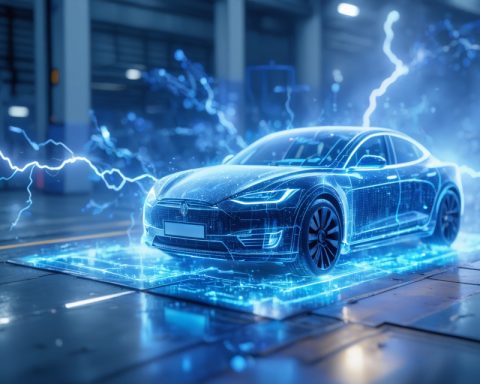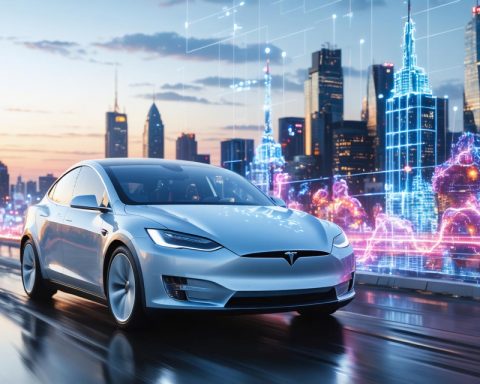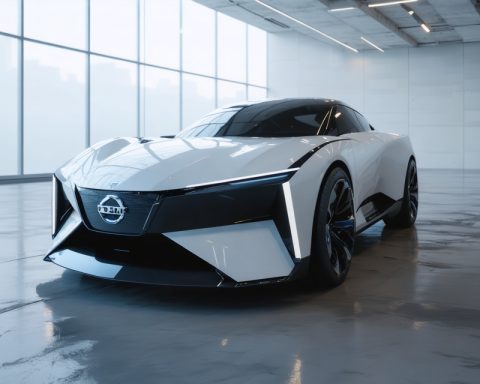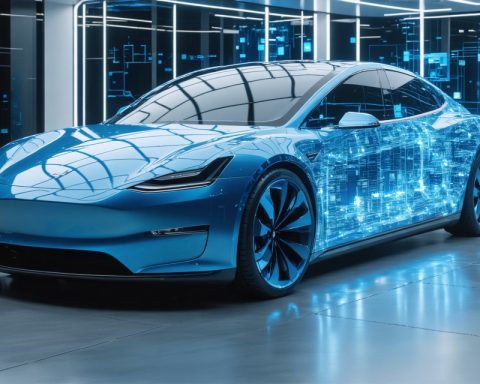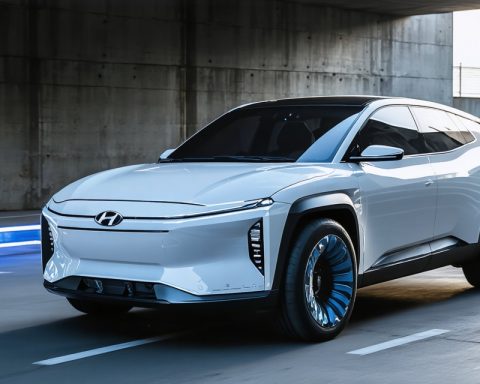- BMW is focusing on hydrogen fuel cells, aiming to launch a commercial fuel cell car by 2028 in collaboration with Toyota.
- The partnership with Toyota highlights a shared belief in hydrogen as essential for future transportation.
- BMW tests green logistics using two hydrogen-powered Iveco S-eWay Fuel Cell trucks in Germany.
- New hydrogen refueling stations support seamless operation for these trucks across test routes.
- BMW’s Leipzig factory, a hydrogen hub, already powers over 200 forklifts with hydrogen infrastructure, with further expansion planned in Regensburg by 2026.
- This initiative is part of the Clean Hydrogen Partnership’s H2Haul project, testing hydrogen trucks in Europe.
- The upcoming “G65” X5 model may offer traditional, hybrid, pure electric, and hydrogen variants, marking a potential automotive shift.
BMW, a titan of automotive luxury, is charging full steam ahead into the realm of hydrogen fuel cells, defying skeptics who dismiss this innovation as a mere transient trend. By 2028, the roads might witness the debut of BMW’s first commercial fuel cell car, an audacious vision shared with their stalwart ally, Toyota. The synergy between these automotive giants underscores a shared belief: hydrogen isn’t just a fleeting shadow but a cornerstone of future transportation.
Vividly testing this green promise, BMW Group Logistics has embarked on an experiment with two hydrogen-powered Iveco S-eWay Fuel Cell trucks in Germany. These trucks, envisioning a landscape free from emissions, traverse the routes between Leipzig, Landsberg, and Nuremberg. Complementing these journeys, two hydrogen refueling stations arise, underscoring the company’s commitment to seamless operation while embracing rapid technology.
Surprisingly, the Leipzig factory already stands as a hydrogen hub, with five refueling stations powering over 200 forklifts and tugger trains—testaments to BMW’s early foresight. This commitment will expand in 2026 as the Regensburg plant joins the hydrogen revolution.
This orchestration doesn’t unfold in isolation; it’s part of the Clean Hydrogen Partnership’s grandiose H2Haul project, putting big hydrogen rigs to the test across Europe’s lands. Lessons harvested from these real-world trials promise to catapult BMW’s technology toward market readiness, heralding a potential transformative shift in road freight.
As BMW crafts the next-generation X5, the “G65” — a pioneer likely offering not just traditional and hybrid engines, but also pure electric and hydrogen variants — the world watches this unfolding saga. BMW’s masterstroke could redefine the automotive landscape, fueling a hydrogen-powered future.
Why BMW’s Bold Hydrogen Gamble Might Be the Future of Clean Transportation
How-To Steps & Life Hacks: Adapting to Hydrogen Fuel Cell Vehicles
1. Understanding Hydrogen Refueling: Unlike electric vehicles that rely on charging stations, hydrogen fuel cell vehicles (FCVs) refuel using hydrogen gas. Locate stations using apps like H2MAP or platforms such as H2.Live.
2. Maintenance Tips: FCVs usually have fewer moving parts compared to traditional combustion engines, reducing maintenance requirements. However, routine checks on the fuel cell stack and hydrogen tanks are essential.
3. Driving Efficiency: Maximize efficiency by driving smoothly and maintaining steady speeds, as aggressive acceleration can deplete hydrogen reserves quicker.
Real-World Use Cases
– Logistics Innovations: BMW’s testing of hydrogen-powered trucks reveals potential for reducing emissions significantly in logistics—a sector traditionally dependent on diesel.
– Factory Applications: The Leipzig and Regensburg plants demonstrate how industrial facilities can integrate hydrogen to power machinery, setting a precedent for other manufacturing sites.
Market Forecasts & Industry Trends
– Growth Prediction: According to the Hydrogen Council, hydrogen could provide 18% of the world’s energy needs by 2050, buoyed by falling costs and rising energy demands.
– Industry Partnerships: Collaborations, like BMW and Toyota, indicate an industry shift towards shared resources to advance hydrogen technology and infrastructure development.
Reviews & Comparisons
– Advantages Over EVs: Hydrogen vehicles refuel faster than electric cars, offer longer ranges, and reduce reliance on scarce resources like lithium.
– Current Limitations: Limited refueling infrastructure remains a significant hurdle, with only a few hundred stations globally compared to over a million EV charging points.
Controversies & Limitations
– Environmental Concerns: While hydrogen is clean at the point of use, production methods like steam methane reforming can be carbon-intensive. Green hydrogen, produced via electrolysis using renewable energy, is the sustainable goal.
– Cost Challenges: High costs are associated with production, distribution, and fuel cell technology, although ongoing research and subsidies could alleviate these issues.
Features, Specs & Pricing
– Potential Models: The upcoming BMW G65 X5 model is anticipated to offer advanced features specific to hydrogen vehicles, including enhanced fuel cell efficiency and onboard tech.
– Pricing Factors: Initial pricing of hydrogen vehicles could be higher due to limited production and specialized technology but may decrease as adoption rises.
Security & Sustainability Considerations
– Safety Measures: Hydrogen is stored under high pressure, requiring robust safety standards. BMW’s commitment to safety is evident in rigorous testing and design protocols.
– Sustainability Factors: Hydrogen’s ability to integrate with renewable resources for production supports its status as a clean energy solution.
Insights & Predictions
– Industry Evolution: The mass adoption of hydrogen vehicles could lead to a diverse energy ecosystem, allowing for flexible fuel solutions that complement electric vehicles.
– Future Models: Expect more manufacturers to enter the hydrogen market, spurred by policy incentives and environmental mandates.
Pros & Cons Overview
Pros:
– Quick refueling and long range.
– Lower emissions during use.
– Potential for integrating with renewables.
Cons:
– Limited infrastructure.
– Production efficiency and cost issues.
Actionable Recommendations
– Explore Government Incentives: Check for incentives or subsidies available for hydrogen vehicle purchase or hydrogen infrastructure development.
– Join Hydrogen Advocacy: Engage with community groups or online forums to promote hydrogen adoption and infrastructure expansion.
– Stay Informed: Keep updated on advancements in water electrolysis technology and policy developments affecting the hydrogen industry.
BMW’s courageous leap into hydrogen signals a pivotal moment for the automotive industry, potentially paving the way for a cleaner, more versatile transportation future. For more information on hydrogen technology and developments across industries, visit BMW Group or Toyota.

